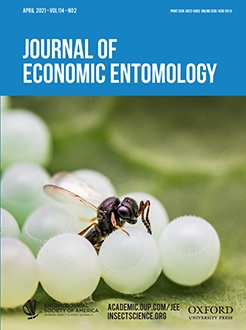With significant surge of international trade in recent decades, increasingly more arthropod species have become established outside their natural range of distribution, causing enormous damage in their novel habitats. However, whether a species can colonize its new environment depends on its ability to overcome various barriers which may result in establishment failure, such as inbreeding depression and difficulty to find mates. Here, we used a haplodiploid pest, Tetranychus ludeni Zacher (Acari: Tetranychidae), which is native to Europe but now cosmopolitan, to investigate whether its reproductive strategies have facilitated its invasion success, providing knowledge to develop programs for prediction and management of biological invasions. We show that inbreeding had no negative influence on female reproductive outputs and longevity over 11 successive generations, allowing mother-son and brother-sister mating to occur at the invasion front without adverse consequences in fitness. Virgin females produced maximum number of sons in their early life to ensure subsequent mother-son mating but later saved resources to prolong longevity for potential future mating. Females maximized their resource allocation to egg production immediately after mating to secure production of maximum number of both daughters and sons as early as possible. Furthermore, mated females with mating delay increased proportion of daughters in offspring produced to compensate the loss of production of daughters during their virgin life. We suggest that the lack of inbreeding depression in successive generations and the ability to adjust resource allocations depending whether and when mating occurs may be the key features that have facilitated its invasion success.
How to translate text using browser tools
13 January 2021
Reproductive Strategies That May Facilitate Invasion Success: Evidence From a Spider Mite
Peng Zhou,
Xiong Zhao He,
Chen Chen,
Qiao Wang
ACCESS THE FULL ARTICLE
It is not available for individual sale.
This article is only available to subscribers.
It is not available for individual sale.
It is not available for individual sale.

Journal of Economic Entomology
Vol. 114 • No. 2
April 2021
Vol. 114 • No. 2
April 2021
inbreeding depression
invasive pest
mating delay
resource allocation




